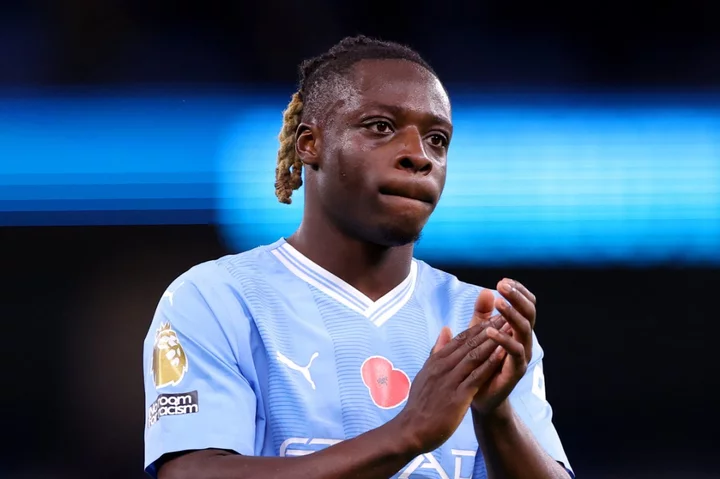Over the past few months, as Chelsea’s hierarchy started to settle into the club, they became fixated on a specific idea relevant to this weekend’s game. They began to study what makes 100-point seasons and record-breaking sides. That might seem some way off, to an almost comic degree, but you’ve got to have goals.
Manchester City are the obvious case study, since they are the only club to manage a centurion season and they still break records. As regards what made that possible, the usual explanation might be “one of the most lavishly expensive football projects in history” but Chelsea’s owners also have huge resources and are clearly willing to spend them. Their outlay on transfer fees so far, if not quite wages, has recalled the dizzy days of Roman Abramovich between 2003 and 2006 and the first few years of the Abu Dhabi ownership at City.
And Chelsea might have a more specific reason to look at the European champions for inspiration.
Chelsea’s own grand project, which is an unprecedented football experiment, is based on bringing in young players of a similar talent profile to Jeremy Doku.
That raises the obvious question of whether Doku would have the same impact if he was at Chelsea? Or, would he be just another young signing showing potential but requiring shape and direction?
Recent form suggests the latter.
There are caveats, of course. It is early days and, as good as Doku has been, the real tests will come later. Clubs like Manchester United and Newcastle had also looked at him, but felt he wasn’t yet developed enough. There was a sense he was too erratic as a player.
However, his impact under Pep Guardiola, especially when contrasted with Raheem Sterling’s influence on Chelsea, speaks volumes about the two clubs.
One significant difference between Doku and so many similar young players at Chelsea is the roles they’ve been signed for. The London club have attempted to overhaul their entire squad, and players of talent have just been thrust into the fray. It has been up to Mauricio Pochettino to make sense of it.
City, from the benefit of over a decade’s planning, can be much more forensic. Their succession plans are so well defined and far-thinking, with most signings settled on at least 18 months in advance - barring any unseen changes like the sudden impact of Saudi Pro League money, which delayed this summer’s business.
Doku was supposed to be next in line in City’s attack but, as occasionally happens in teams that are so high-functioning, a player of his talent has been able to slot right in. It has even gone a little bit in the other direction, in how Doku’s livewire play actually gives City’s smoothness something different.
It’s hard not to have some sympathy with Jack Grealish. When he was signed, Guardiola worked on him for weeks, seeking to change his thinking on the game and add much more control to it. Grealish was still talking about how he needed to evolve by the end of a season where he’d won his first title. Doku, by contrast, has just been put in the team and let loose to also leave Grealish on the bench.
This isn’t to say the English playmaker should be overly worried about his medium-to-long-term role. As Sterling knows better than anybody, Guardiola goes on and off players all the time. It is partly his way of keeping them on their toes, partly tactical experimentation, partly man-management and partly what fits at any given time.
Sterling ultimately felt he didn’t have that time, and sought to be a more influential player at another major club.
There is something of an irony there, though. While Sterling is Chelsea’s senior attacker, who has a huge burden in leading the play, his best role is probably as someone who works off other stars and does real damage there. That is when his running on the ball and off it can be devastating.
The farcical match against Tottenham Hotspur on Monday showed how much focus there can be on Sterling in this Chelsea team, although it had the effect of releasing Nicolas Jackson for so many chances that he eventually got a hat-trick by sheer force of numbers.
While there will be an obvious comparison between that and Doku’s impact against Bournemouth, they were very different types of performances. They are very different types of roles.
At Chelsea, attackers like Jackson and Cole Palmer already have a huge responsibility, which increases the burden on Sterling.
At City, Doku is able to play off a series of stars who know precisely what their job is. It means he can figure out his own game, as defences try to figure him out.
Read MoreThe future of football: Why the U-17 World Cup highlights an evolving game
One point: Is this the worst score of the Fantasy Premier League season?
Are England’s Harry Kane and Jude Bellingham the best strike force in world football?
Rumours: Man United could sell duo in January and Newcastle target midfield pair
How can Man United qualify in Champions League?
Champions League: What do Man United, Newcastle and Arsenal need to reach last 16?

